Hormones
How to submit an article:
- Registered users can submit any published journal article that has a unique DOI (Digital Object Identifier) name or link to Research Hub.
- For example, you can paste the full DOI link:
https://doi.org/10.1109/5.771073or just the DOI name:10.1109/5.771073into the field above and click submit. - The person who is first to submit a valid article to Research Hub will forever be credited for it, and every article submission earns you +6 Research Points.
Related Topics
Published research studies are articles that present the findings of original research that has undergone a peer-review process and has been made publicly available in scholarly journals, books or other media.
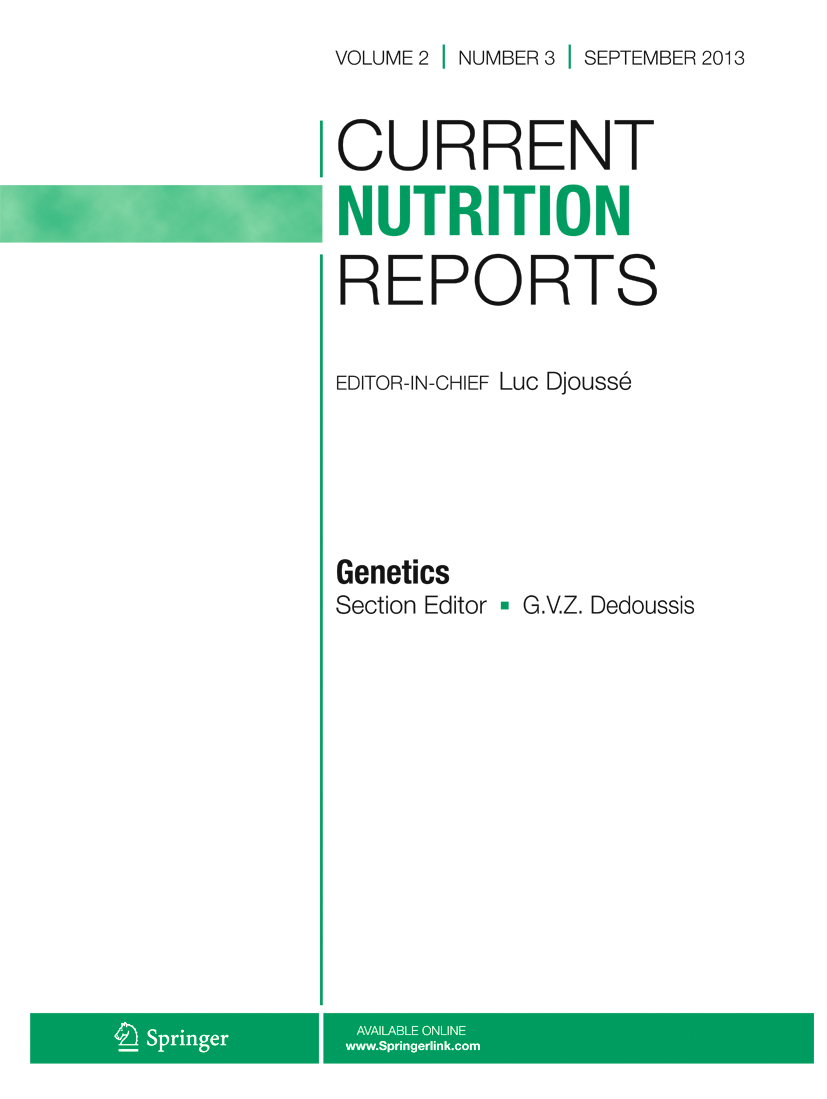
Impact of Oats on Appetite Hormones and Body Weight Management: A Review
2023 Feb 15 Current Nutrition Reports Shehzad A, Rabail R, Munir S, Jan H, Fernández-Lázaro D, Aadil RM
Review Article Obesity Appetite OatsOats, in various edible forms, can regulate appetite hormones, aid weight management, strengthen the immune system, and contribute to gut health, making them effective for obesity management.

The effect of concentrated pomegranate juice on biomarkers of inflammation, oxidative stress, and sex hormones in overweight and obese women with polycystic ovary syndrome: A randomized controlled trial
2023 Jan 18 Phytotherapy Research Abedini M, Ramezani‐Jolfaie N, Ghasemi‐Tehrani H, Tarrahi MJ, Amani R
Randomised Controlled Trial PCOS Pomegranate TestosteronePomegranate juice supplementation has been found to effectively decrease testosterone levels in overweight and obese women diagnosed with polycystic ovary syndrome.
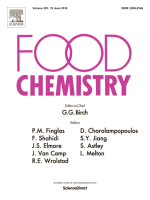
Pu-erh tea increases the metabolite Cinnabarinic acid to improve circadian rhythm disorder-induced obesity
2022 Nov Food Chemistry Hu S, Hu C, Luo L, Zhang H, Zhao S, Liu Z, et al.
Experimental Study Animal Study Gut Microbiota Obesity Pu-Erh Tea Circadian Rhythm Cinnabarinic AcidPu-erh tea, through the increase of Cinnabarinic acid, can improve obesity induced by circadian rhythm disorders by enhancing fat metabolism and altering gut microbes.

The Effectiveness of Manual Acupuncture Therapy for Acne Vulgaris: A Case Report
2022 Oct 31 Journal of Agromedicine and Medical Sciences Fredy DM, Nareswari I
The acupuncture mechanism works directly on acne lesions by improving microcirculation, reducing proinflammatory reactions, and increasing anti-inflammatory, as well as regulating the HPA axis which can reduce stress and improve hormones. Manual acupuncture can be considered a non-pharmacological therapeutic modality to treat AV with minimal side effects.
Case Report Acne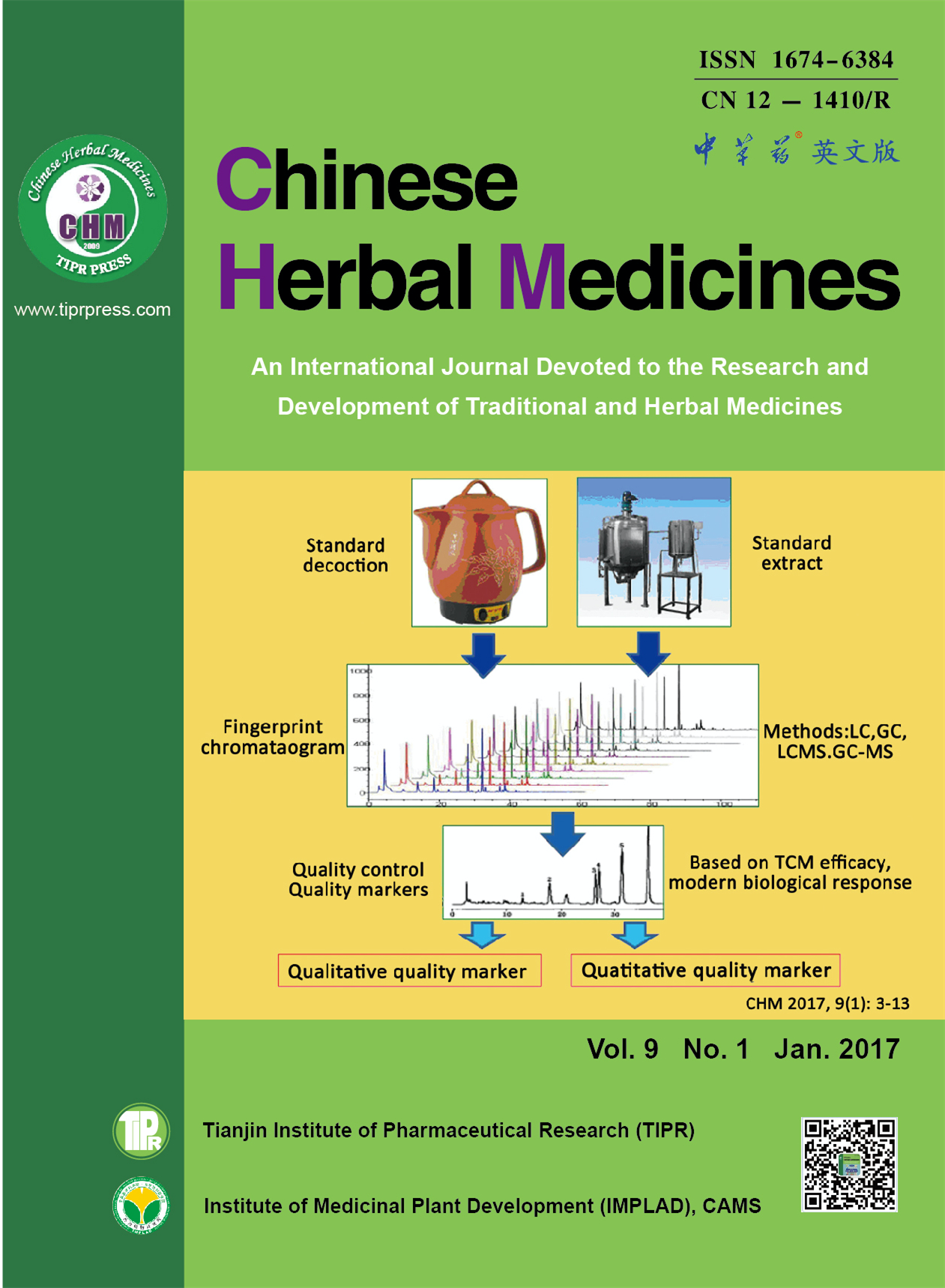
Emerging therapeutic role of Prunella vulgaris in thyroid disease
2022 Jul Chinese Herbal Medicines Zhang W, Wuhan Q, Na M, Hu R, Mu Q, Bao X
Herbs such as P. vulgaris have great potential for treating thyroid disorders owing to their anti-oxidation and immunological effects and are frequently used as ingredients in herbal recipes. P. vulgaris is thought to combat drug toxicity within the body, therefore its own active ingredients have attracted much attention. The use of P. vulgaris with other drugs resulted in significant elimination of swollen nodules, reduced inflammatory response, and improved thyroid function. These effects of P. vulgaris benefit the clinical treatment of thyroid disease while having reduced drug-induced side effects and improved therapeutic effects. However, with only a few studies presenting treatment with Prunella vulgaris alone, further investigation is needed to to explore the physiological mechanisms.
Review Article Xia Ku CaoResearch insights are moderated by the Research Hub team and offer an at-a-glance overview of interesting research findings.

2023 Current Nutrition Reports
Oats, in various edible forms, can regulate appetite hormones, aid weight management, strengthen the immune system, and contribute to gut health, making them effective for obesity management.
Review Article Appetite Oats Obesity
Impact of Oats on Appetite Hormones and Body Weight Management: A Review
Shehzad A, Rabail R, Munir S, Jan H, Fernández-Lázaro D, Aadil RM

2023 Phytotherapy Research
Pomegranate juice supplementation has been found to effectively decrease testosterone levels in overweight and obese women diagnosed with polycystic ovary syndrome.
Randomised Controlled Trial PCOS Pomegranate Testosterone
The effect of concentrated pomegranate juice on biomarkers of inflammation, oxidative stress, and sex hormones in overweight and obese women with polycystic ovary syndrome: A randomized controlled trial
Abedini M, Ramezani‐Jolfaie N, Ghasemi‐Tehrani H, Tarrahi MJ, Amani R

2022 Food Chemistry
Pu-erh tea, through the increase of Cinnabarinic acid, can improve obesity induced by circadian rhythm disorders by enhancing fat metabolism and altering gut microbes.
Experimental Study Cinnabarinic Acid Circadian Rhythm Gut Microbiota Obesity Pu-Erh Tea
Pu-erh tea increases the metabolite Cinnabarinic acid to improve circadian rhythm disorder-induced obesity
Hu S, Hu C, Luo L, Zhang H, Zhao S, Liu Z, et al.

2022 Evidence-Based Complementary and Alternative Medicine
Among patients with PCOS, the combined use of acupuncture and moxibustion as a complementary therapy has additional efficacy regarding increased pregnancy and ovulation rates and reduced miscarriage rate.
Systematic Review Acupuncture Moxibustion
Effects of Acupuncture Combined with Moxibustion on Reproductive and Metabolic Outcomes in Patients with Polycystic Ovary Syndrome: A Systematic Review and Meta-Analysis
Li P, Peng J, Ding Z, Zhou X, Liang R

2022 Journal of Ethnopharmacology
Saffron petal extract and anthocyanins can alleviate symptoms of Polycystic Ovary Syndrome by rectifying hormonal imbalances and reducing inflammation in PCOS mice.
Experimental Study Anti-Inflammatory Hormonal Imbalance PCOS Saffron
Crocus sativus (saffron) petals extract and its active ingredient, anthocyanin improves ovarian dysfunction, regulation of inflammatory genes and antioxidant factors in testosterone-induced PCOS mice
Moshfegh F, Balanejad SZ, Shahrokhabady K, Attaranzadeh A
Review Articles
Review articles summarise and critically evaluate the current state of research on a specific topic or field by synthesising multiple primary research studies.

Impact of Oats on Appetite Hormones and Body Weight Management: A Review
2023 Feb 15 Current Nutrition Reports Shehzad A, Rabail R, Munir S, Jan H, Fernández-Lázaro D, Aadil RM
Review Article Obesity Appetite OatsOats, in various edible forms, can regulate appetite hormones, aid weight management, strengthen the immune system, and contribute to gut health, making them effective for obesity management.

Emerging therapeutic role of Prunella vulgaris in thyroid disease
2022 Jul Chinese Herbal Medicines Zhang W, Wuhan Q, Na M, Hu R, Mu Q, Bao X
Herbs such as P. vulgaris have great potential for treating thyroid disorders owing to their anti-oxidation and immunological effects and are frequently used as ingredients in herbal recipes. P. vulgaris is thought to combat drug toxicity within the body, therefore its own active ingredients have attracted much attention. The use of P. vulgaris with other drugs resulted in significant elimination of swollen nodules, reduced inflammatory response, and improved thyroid function. These effects of P. vulgaris benefit the clinical treatment of thyroid disease while having reduced drug-induced side effects and improved therapeutic effects. However, with only a few studies presenting treatment with Prunella vulgaris alone, further investigation is needed to to explore the physiological mechanisms.
Review Article Xia Ku Cao
Acupuncture for Female Infertility: Discussion on Action Mechanism and Application
2022 Jul 04 Evidence-Based Complementary and Alternative Medicine Xu J, Zhao A, Xin P, Geng J, Wang B, Xia T
Acupuncture and related therapy can restore the average balance and regularity of sex hormones in infertile women by decreasing serum FSH and LH levels and increasing E2 and P levels, which are beneficial for follicle development and maturation, regular ovulation, and the normal physiological function of the inner membrane, which is conducive to conception. As a complementary and alternative therapy, acupuncture can play a positive role in PCOS-infertility, POI- infertility, and IVF-ET, with clinical application value.
Review Article Acupuncture Female Fertility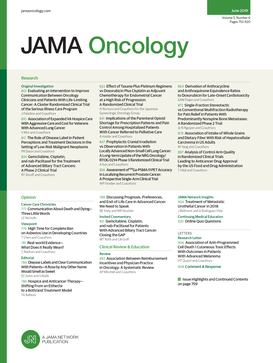
Acupuncture for Female Infertility: Discussion on Action Mechanism and Application
2022 Jul 04 JAMA Oncology Xu J, Zhao A, Xin P, Geng J, Wang B, Xia T
Acupuncture and related therapy can restore the average balance and regularity of sex hormones in infertile women. As a complementary and alternative therapy, acupuncture can play a positive role in PCOS-infertility, POI- infertility, and IVF-ET, with clinical application value.
Review Article Ear Acupuncture Infertility Acupuncture
Effects of Acupuncture Combined with Moxibustion on Reproductive and Metabolic Outcomes in Patients with Polycystic Ovary Syndrome: A Systematic Review and Meta-Analysis
2022 Mar 31 Evidence-Based Complementary and Alternative Medicine Li P, Peng J, Ding Z, Zhou X, Liang R
Systematic Review Meta-Analysis Acupuncture MoxibustionAmong patients with PCOS, the combined use of acupuncture and moxibustion as a complementary therapy has additional efficacy regarding increased pregnancy and ovulation rates and reduced miscarriage rate.
Clinical Trials
Clinical trials are research studies that involve people and are conducted to evaluate the safety and efficacy of new treatments or interventions, such as drugs, medical devices, or behavioural therapies.

The effect of concentrated pomegranate juice on biomarkers of inflammation, oxidative stress, and sex hormones in overweight and obese women with polycystic ovary syndrome: A randomized controlled trial
2023 Jan 18 Phytotherapy Research Abedini M, Ramezani‐Jolfaie N, Ghasemi‐Tehrani H, Tarrahi MJ, Amani R
Randomised Controlled Trial PCOS Pomegranate TestosteronePomegranate juice supplementation has been found to effectively decrease testosterone levels in overweight and obese women diagnosed with polycystic ovary syndrome.

Effect of Wenshentiaojing Decoction on Hormone Level and Follicular Number in Patients with Menstrual Disorder of Polycystic Ovary Syndrome
2021 Nov 29 Evidence-Based Complementary and Alternative Medicine Li L, Huang N, Qi Y, Li Y, Wang L
Randomised Controlled Trial
Effect of dietary supplementation with oat β-glucan for 3 months in subjects with type 2 diabetes: A randomized, double-blind, controlled clinical trial
2021 Feb Journal of Functional Foods Pino JL, Mujica V, Arredondo M
Randomised Controlled Trial Gut Microbiota Satiety HbA1C Type 2 Diabetes Blood Sugar OatsEnriching a regular diet with oat β-glucan can improve glycemic control, augment feelings of fullness, and positively modulate gut microbiota in individuals with type-2 diabetes.
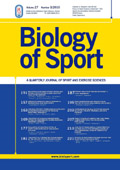
Moderate walnut consumption improved lipid profile, steroid hormones and inflammation in trained elderly men: a pilot study with a randomized controlled trial
2021 Jan Biology of Sport Kamoun A, Hammouda O, Turki M, Maaloul R, Chtourou M, Bouaziz M, et al.
Randomised Controlled Trial Walnut Inflammation CRP Cholesterol Cortisol TestosteroneWalnut consumption coupled with concurrent training improves lipid profile, steroid hormone levels, and systematic inflammation in elderly men.

Effect of traditional Chinese medicine formula GeGen decoction on primary dysmenorrhea: A randomized controlled trial study
2020 Oct Journal of Ethnopharmacology Chai C, Hong F, Yan Y, Yang L, Zong H, Wang C, et al.
GeGen Decoction demonstrated a significant reduction in the severity of menstrual pain, as indicated by the visual analogue scale (VAS), without apparent adverse effects. The treatment influenced serum levels of AVP and E, suggesting a potential role in regulating pituitary-hypothalamic-ovarian hormones. Metabolomic analysis revealed distinct changes in seven important metabolites, further supporting the therapeutic effects of GeGen Decoction on primary dysmenorrhea.
Experimental Study Randomised Controlled Trial Period Pain Ge Gen Decoction Ge Gen TangStudy Protocols
Published study protocols are detailed plans that outline the objectives, methodology, statistical analyses, and organisation of a research study that have been made publicly available for others to review and use as a reference.
Presentation Slides

Review Article
Oats, in various edible forms, can regulate appetite hormones, aid weight management, strengthen the immune system, and contribute to gut health, making them effective for obesity management.
Shehzad A, Rabail R, Munir S, Jan H, Fernández-Lázaro D, Aadil RM

Randomised Controlled Trial
Pomegranate juice supplementation has been found to effectively decrease testosterone levels in overweight and obese women diagnosed with polycystic ovary syndrome.
Abedini M, Ramezani‐Jolfaie N, Ghasemi‐Tehrani H, Tarrahi MJ, Amani R

Experimental Study
Pu-erh tea, through the increase of Cinnabarinic acid, can improve obesity induced by circadian rhythm disorders by enhancing fat metabolism and altering gut microbes.
Hu S, Hu C, Luo L, Zhang H, Zhao S, Liu Z, Zeng L

Systematic Review
Among patients with PCOS, the combined use of acupuncture and moxibustion as a complementary therapy has additional efficacy regarding increased pregnancy and ovulation rates and reduced miscarriage rate.
Li P, Peng J, Ding Z, Zhou X, Liang R

Experimental Study
Saffron petal extract and anthocyanins can alleviate symptoms of Polycystic Ovary Syndrome by rectifying hormonal imbalances and reducing inflammation in PCOS mice.
Moshfegh F, Balanejad SZ, Shahrokhabady K, Attaranzadeh A
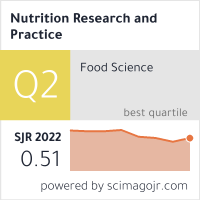
Meta-Analysis
Isoflavone supplementation noticeably impacts menopausal symptoms and hormonal changes in postmenopausal women.
Kang I, Rim CH, Yang HS, Choe JS, Kim JY, Lee M

Review Article
Coconut water possesses unique compound profiles that imbue it with a broad spectrum of medical properties, incorporating aspects of nutrition, pharmacology, and disease prevention.
Rethinam P, Krishnakumar V

Experimental Study
Tiger nut and walnut supplementation in diets can improve testosterone levels and help control vasoconstriction, potentially benefiting hypertensive individuals.
Olabiyi AA, Morsch VM, Oboh G, Schetinger MRC
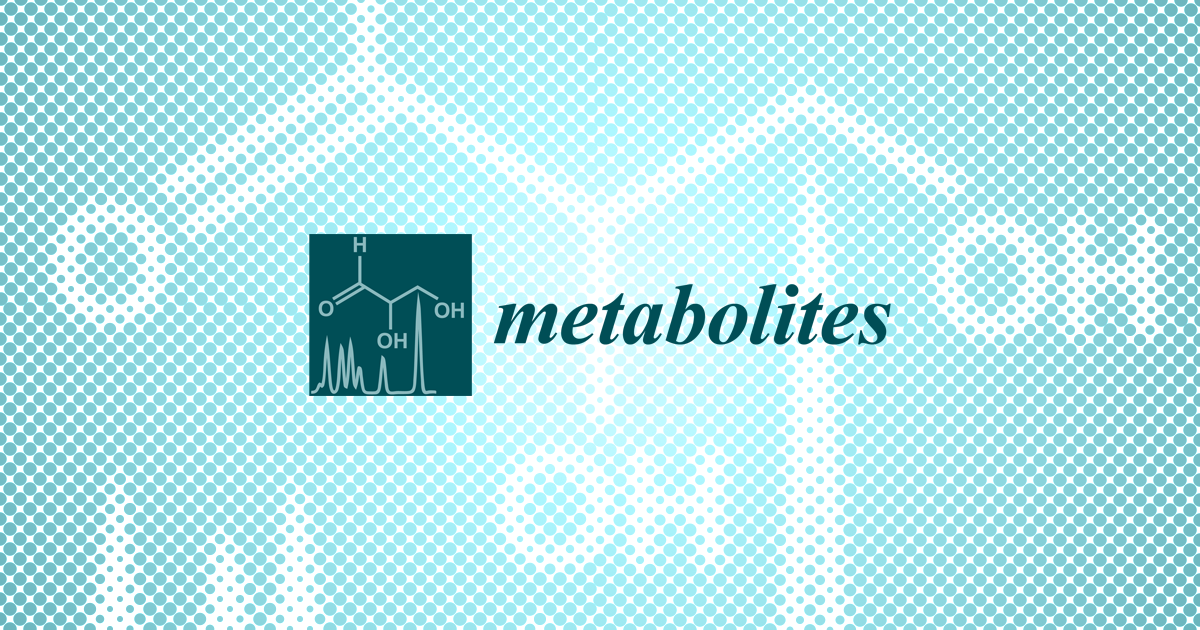
Review Article
The date palm enhances both male and female fertility parameters through its nutritional attributes and antioxidant functionality.
Shehzad M, Rasheed H, Naqvi SA, Al-Khayri JM, Lorenzo JM, Alaghbari MA, Manzoor MF, Aadil RM
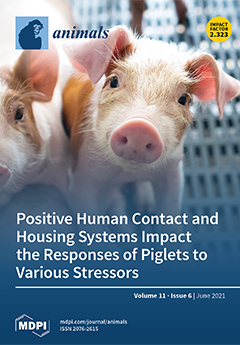
Animal Study
Goji berry supplementation in does' diet positively influences both their reproductive and productive performance, likely through adjustment of hormonal patterns and milk production.
Andoni E, Curone G, Agradi S, Barbato O, Menchetti L, Vigo D, Zelli R, Cotozzolo E, Ceccarini MR, Faustini M, Quattrone A, Castrica M, Brecchia G

Randomised Controlled Trial
Enriching a regular diet with oat β-glucan can improve glycemic control, augment feelings of fullness, and positively modulate gut microbiota in individuals with type-2 diabetes.
Pino JL, Mujica V, Arredondo M
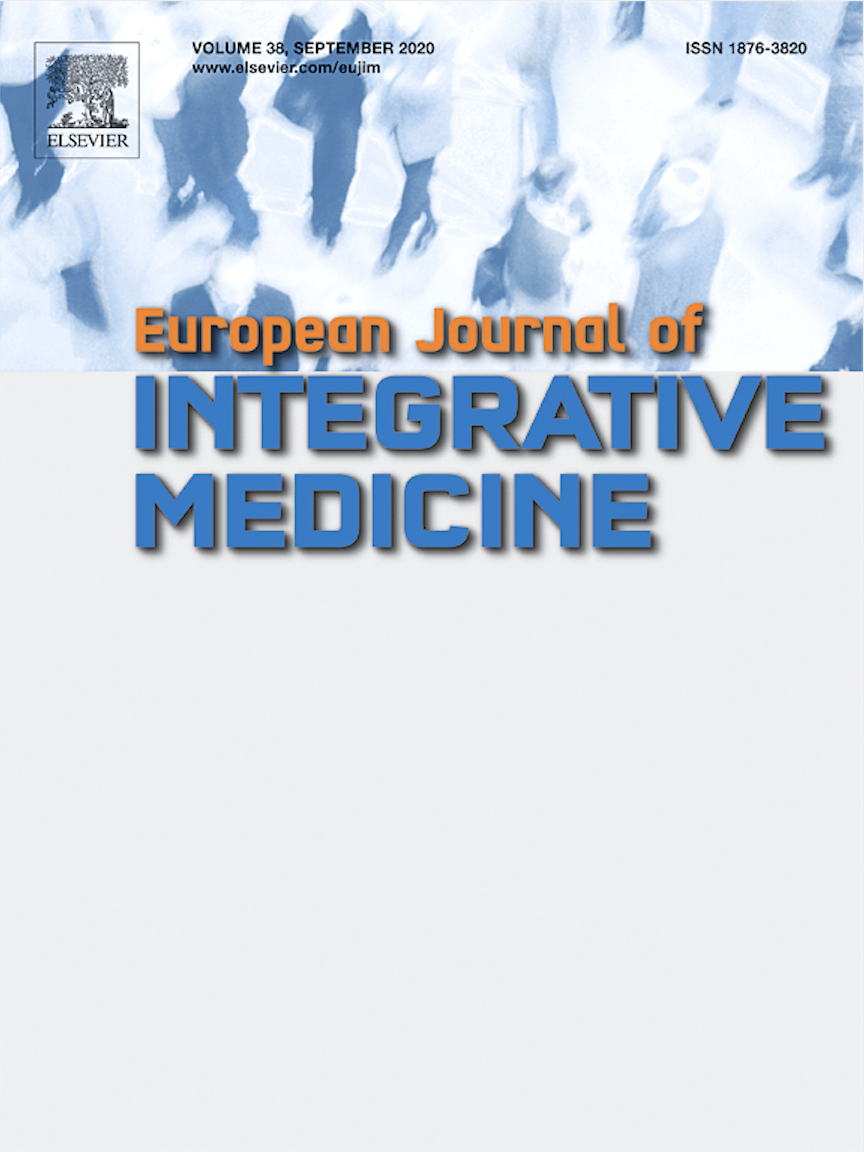
Systematic Review
Acupuncture may have a positive effect on anxiety relief during IVF treatment, while its effect on depression relief is inconclusive.
Ye JY, He YJ, Zhan MJ, Qu F

Randomised Controlled Trial
Walnut consumption coupled with concurrent training improves lipid profile, steroid hormone levels, and systematic inflammation in elderly men.
Kamoun A, Hammouda O, Turki M, Maaloul R, Chtourou M, Bouaziz M, Driss T, Souissi N, Chamari K, Ayadi F

Network Pharmacology
Guizhi Fuling Wan, a traditional herbal formula, can improve peripheral blood flow in menopausal hot flush sufferers, despite not changing the frequency or severity of the flushes.
Li , Hung , Li , Yang
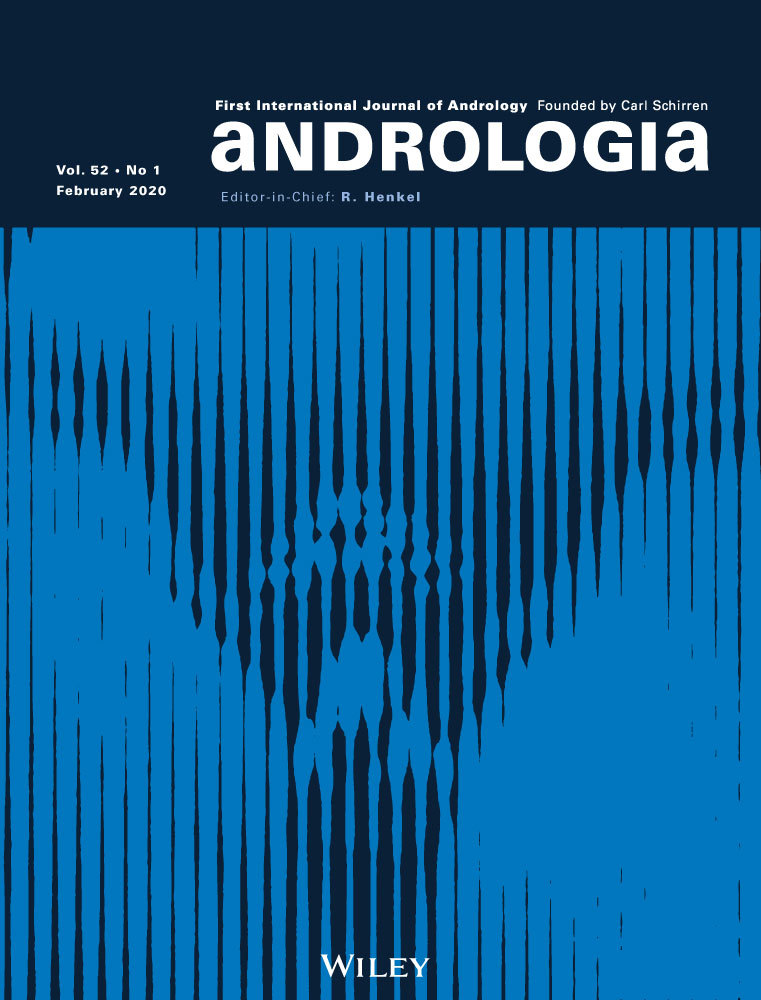
Systematic Review
Ginger enhances semen quality and improves sperm parameters, an impact linked to increased levels of gonadal hormones, decreased cell damage, and valued nutrients in ginger.
Banihani SA

Systematic Review
Acupuncture adjuvant to other active medications could affect hormonal levels such as LH, LH/FSH ratio, testosterone, and fasting insulin in women with polycystic ovarian syndrome.
Jo, J., Lee, Y. J., & Lee, H.

Systematic Review
There is a low level of evidence that acupuncture may be superior to sham acupuncture, drugs or hormone therapy for managing cancer-related insomnia.
Choi TY, Kim JI, Lim HJ, Lee MS.

Experimental Study
Pomegranate juice extract significantly improves hormonal changes in female rats with Polycystic Ovary Syndrome.
HOSSEIN KARGAR, LEILA KARGAR, EBRAHIM TAVAKOL, NAZANIN SHAFIEI, FARZAD POORGHOLAMI, ELHAM RAHMANIAN, MOHAMMAD POURAHMADI, ZAHRA HASANPOUR
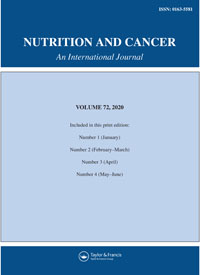
Clinical Study
Pomegranate juice consumption slightly decreases estrone and testosterone levels in normal weight postmenopausal women.
Kapoor R, Ronnenberg A, Puleo E, Chatterton Jr. RT, Dorgan JF, Seeram NP, Sturgeon SR
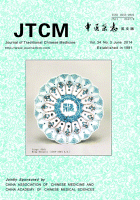
Systematic Review
Chinese herbal medicine combined with western medicine used to treat subacute thyroiditis may improve clinical symptoms and signs, reduce relapse rate, and alleviate the side effects of hormones.
Hui Luo, Meng Lü, Xiaohua Pei, Zhongyuan Xia
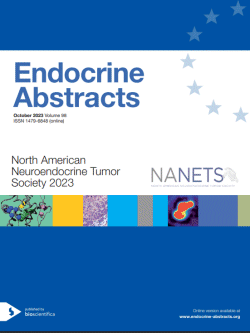
Randomised Controlled Trial
Pomegranate extract intake, rich in biophenols, lessens salivary cortisol levels, hence potentially improving health-related quality of life, particularly in stress-suffering individuals.
Stockton A, Al-Dujaili E
Executive Summary
Write an executive summary in the form of a blog article on the topic of "Research into Chinese medicine treatment for Hormones" summarising the research below and using language that can be easily understood by patients and avoiding medical jargon using a professional and caring tone of voice.
Write an executive summary in the form of a blog article on the topic of "Researched Chinese medicine treatments for Hormones" summarising the research below in an objective and easy to understand way, and using language that can be easily understood by patients. Group the article into Chinese medicine treatments first, followed by nutrition and other treatments. Avoid using medical jargon and use a professional and caring tone of voice.
Write me a concise but easy to understand executive summary on the topic of "Chinese medicine treatments for Hormones" based on the following research that I will give you. Your summary should be 2 paragraphs long in Australian English spelling and include references to the studies.
A Review Article published in 2023 in the journal Current Nutrition Reports found that Oats, in various edible forms, can regulate appetite hormones, aid weight management, strengthen the immune system, and contribute to gut health, making them effective for obesity management. The research methodology entailed a review of the role of hunger hormones in managing obesity and studying the influence of different edible forms of oats like whole, naked, sprouted, or supplemented oats on these hormones. The relationship between consumption of oats and various indicators of obesity such as body mass index, waist circumference, body weight, appetite, and blood pressure, amongst others was investigated. Furthermore, the nutritional content of oats like protein, fiber, healthy fats, and bioactive ingredients was analyzed, with particular emphasis on Beta-glucan as it lowers cholesterol levels and enhances the body's defense system. The results of the studies showed that oats have several therapeutic potentials. An intake of oats helps manage body weight and control appetite. In addition, oats positively impact the immune system and lower cholesterol levels in the serum. They also foster gut health by promoting the increased production of short-chain fatty acids. Despite these findings, some studies showed no significant effects of oats on appetite.
A Randomised Controlled Trial published in 2023 in the journal Phytotherapy Research found that Pomegranate juice supplementation has been found to effectively decrease testosterone levels in overweight and obese women diagnosed with polycystic ovary syndrome. In the methodology, the study employed a randomized controlled trial which involved 44 participants. The women, aged between 18 and 40 years, had all been diagnosed with polycystic ovary syndrome and had a body mass index exceeding 25 kg/m. They were randomly divided, with one group consuming 45 ml/day of concentrated pomegranate juice and the other group receiving no intervention. A variety of biomarkers for sex hormones, inflammation, and oxidative stress were measured before starting the trial and again after eight weeks. Further discussion of the results revealed a significant decrease in testosterone levels among the overweight and obese women with polycystic ovary syndrome who took concentrated pomegranate juice over the eight week period, in contrast to those in the control group. Apart from testosterone, no significant changes were observed for luteinizing hormone, sex hormone-binding globulin levels or for markers of inflammation and oxidative stress between the two groups.
A Experimental Study published in 2022 in the journal Food Chemistry found that Pu-erh tea, through the increase of Cinnabarinic acid, can improve obesity induced by circadian rhythm disorders by enhancing fat metabolism and altering gut microbes. In this study, a CRD-induced obesity model in mice was developed and Pu-erh tea was used as an intervention. The effect of Pu-erh tea on obesity was observed and determined to come from its production of Cinnabarinic acid (CA). CA was found to promote adipose tissue lipolysis and heat generation response, increasing the sensitivity of fat cells to hormones and neurotransmitters. This was accomplished by targeting the expression of specific receptor proteins in adipose tissue. These processes improved mitochondrial activity in the fat cells and expedited metabolic processes in the adipose tissue, thereby speeding up glucose and fat metabolism. In the final stage of the study, CA was found to make changes in the gut microbiota and short-chain fatty acids which further helped to improve the lipid accumulation mediated by CRD. The researchers concluded that the increase in CA, caused by drinking Pu-erh tea and reaching the fat tissue through blood circulation, could be a crucial mechanism to reduce obesity induced by circadian rhythm disorders.
A Systematic Review published in 2022 in the journal Evidence-Based Complementary and Alternative Medicine found that Among patients with PCOS, the combined use of acupuncture and moxibustion as a complementary therapy has additional efficacy regarding increased pregnancy and ovulation rates and reduced miscarriage rate. The systematic review included 25 RCTs assessing the efficacy and safety of acupuncture combined with moxibustion in treating PCOS, and all of them contributed data to the meta-analysis. Evidence of an association between acupuncture and moxibustion therapy and greater increases in the pregnancy rate and ovulation rate and greater reductions in the miscarriage rate and ovarian volume was found. Additionally, patients receiving acupuncture and moxibustion also exhibited greater improvements in some sex hormones (LH level, LH/FSH ratio and total testosterone level) and indicators related to metabolic disorders (fasting insulin level and BMI). Nevertheless, acupoint stimulation therapy had no significant effect on the levels of FSH, DHEAS, or oestradiol. In this systematic review, the pregnancy rate among patients who received acupuncture combined with moxibustion reached 50.9%. This value represents a substantial increase compared to that of patients who did not receive acupuncture (27.5%), with an RR of 1.81 and a 4.9% additional increase compared with patients receiving acupuncture + active drugs in the PCOSAct trial (46.0%).
A Experimental Study published in 2022 in the journal Journal of Ethnopharmacology found that Saffron petal extract and anthocyanins can alleviate symptoms of Polycystic Ovary Syndrome by rectifying hormonal imbalances and reducing inflammation in PCOS mice. The study conducted experiments on mice induced with Polycystic Ovary Syndrome (PCOS) through the injection of testosterone enanthate. These mice were then treated with saffron petal extract and anthocyanins to observe the effect on their ovarian hormones, steroidogenic enzymes, ovarian dysfunction, regulation of anti-inflammatory genes, and antioxidant factors. The treatment was found to decrease the elevated levels of luteinizing hormone, testosterone, and estrogen in the PCOS mice, while reviving the reduced follicular-stimulating hormone and progesterone levels. In discussion of the results, it was observed that saffron petal extract and anthocyanins positively altered the levels of gonadotropin receptors, steroid receptors, inflammatory markers, inflammatory-related factors, and antioxidant enzymes that were affected by the PCOS condition in the subject mice. The study also noted that the reproductive tissues of the PCOS mice, which were converted into androgen-dominant environments by the testosterone enanthate induction, were restored into estrogenic conditions after the treatment. Further findings suggested that saffron petal extract and anthocyanins led to amelioration of PCOS symptoms by enhancing the regulation of ovarian steroids, steroidogenic processes, antioxidant enzyme production, and inflammatory markers.
A Meta-Analysis published in 2022 in the journal Nutrition Research and Practice found that Isoflavone supplementation noticeably impacts menopausal symptoms and hormonal changes in postmenopausal women. In order to examine isoflavones effects on menopausal symptoms and the associated hormonal alterations, a systematic review and meta-analysis were conducted. To do this, the PubMed and EMBASE databases were used, but the selected studies were restricted to random controlled trials (RCTs) assessing isoflavone supplementation's impact on menopausal symptoms. Overall, 11 studies were chosen for the final quantitative evaluation, and the isoflavone intervention amount varied among these studies. The Meta-analysis displayed that supplementing isoflavones meaningfully increased estradiol levels and the Kupperman index (a composite scoring of multiple menopausal symptoms intensity). Yet, there were no significant impacts observed on hot flashes, or the release of two specific hormones: follicle-stimulating hormone and luteinizing hormone. It should be noted that there was a significant inconsistency in estradiol levels and Kupperman index findings among different studies.
A Review Article published in 2022 in the journal Reference Series in Phytochemistry found that Coconut water possesses unique compound profiles that imbue it with a broad spectrum of medical properties, incorporating aspects of nutrition, pharmacology, and disease prevention. The study utilized comprehensive analysis to assess the chemical profile of coconut water, identifying a range of components including phytohormones, enzymes, antioxidant compounds, vitamins, minerals, and phenolic compounds. These components are known to contribute to the water's biological activity and pharmacological effects, thereby enabling a raft of medicinal properties inherent to coconut water. The water was found to feature anti-microbial, anti-bacterial, anti-inflammatory, anti-hypertensive, rejuvenating, hepatoprotective, hypolipidemic, and diuretic properties. An examination of the therapeutic effects of coconut water revealed a significant impact on gastric dysfunction, dysentery, and child malnutrition alongside notable capabilities to manage hypertension. The water was found to promote exercise performance, reduce swelling, dissolve kidney stones, improve kidney function, improve digestion, relieve constipation, reduce the risk of heart disease, lower high blood pressure, and improve cholesterol levels. Consumption of tender coconut water was specifically found to reduce the risk of heart disease, help prevent Alzheimer’s disease pathologies and prevent osteoporosis in experimental animals. The unique nutritional profile of coconut water was also found to provide it with the capacity to balance body chemistry and fight cancer.
A Experimental Study published in 2021 in the journal Nutrients found that Tiger nut and walnut supplementation in diets can improve testosterone levels and help control vasoconstriction, potentially benefiting hypertensive individuals. Rats were used in the experiment, placed into seven distinct groups with various diet and medicinal intake combinations including basal diet controls, supplemented processed and raw tiger nut (TN) and walnut (WN) diets, and more. Before hypertension was induced with L-NAME, the rats were given their regular diet for two weeks. After this period, they began receiving L-NAME for ten subsequent days. The scientists then measured the impacts on the rats' platelet androgen levels, ectonucleotidases, and adenosine deaminase (ADA). The L-NAME treatment resulted in a considerable decline in testosterone levels in the rats. However, the groups that were fed diets supplemented with TN and WN exhibited improved testosterone levels compared to the control group, yet their luteinizing hormone levels remained unchanged. The L-NAME-treated group also saw an increase in ATP hydrolysis and ADA activity, alongside a reduction in ADP and AMP hydrolysis. These effects were substantially reversed in the groups that were fed supplemented TN and WN diets. This suggests that TN and WN could enhance testosterone levels and modulate the purinergic system in platelets, which might be a potential mechanism through which they contribute to the control of vasoconstriction.
A Review Article published in 2021 in the journal Metabolites found that The date palm enhances both male and female fertility parameters through its nutritional attributes and antioxidant functionality. The research conducted a thorough review of the role of date palm in treating infertility. The health benefits of date palm and its varied components were explored, with a focus on their effects on reproductive parameters in both sexes. The comprehensive review shed light on how the substantial nutrients and antioxidant features of date palm can be beneficial for people dealing with infertility. In men, the study found direct links between consumption of date palm and improved hormonal levels alongside notable enhancements in seminal vesicle parameters and sperm quality. For women, this natural remedy showed a positive impact on the process of oogenesis, hormone regulation, and improving pregnancy outcomes. The focus was on the potential of date fruit as a natural enhancer of fertility, downplaying the role of any synthetic or invasive medical interventions. The study thus testifies to the innovative use of a widely available natural resource in addressing a pressing health issue.
A Animal Study published in 2021 in the journal Animals found that Goji berry supplementation in does' diet positively influences both their reproductive and productive performance, likely through adjustment of hormonal patterns and milk production. In the methodology, this study involved an experiment with 105 nulliparous does divided into three groups two months prior to artificial insemination. The groups were distinguished by their diet: the commercial diet and those supplemented with either 1% or 3% of goji berry. They focused on assessing the effects on hormonal profile and the animals' receptive, productive, and reproductive performance. The results shed light on increasing receptivity in the group that was supplemented with 1% goji berry over the commercial diet group. Departures noted between both goji-supplemented groups with regard to hormonal concentration, specifically LH, with G1 showing slight edge. There was also a significant interaction effect observed in estrogen concentrations. Additionally, the 1% goji-supplemented group showed higher litter weight than the commercial diet group at both birth and weaning stages, along with a larger litter size at weaning. This group also exhibited the highest average milk production. The study concluded that goji berry supplementation potentially has a positive impact on reproductive and productive performance, possibly through the modulation of hormonal patterns and milk production in rabbits.
A Randomised Controlled Trial published in 2021 in the journal Journal of Functional Foods found that Enriching a regular diet with oat β-glucan can improve glycemic control, augment feelings of fullness, and positively modulate gut microbiota in individuals with type-2 diabetes. The research involved 37 subjects with type-2 diabetes, who were required to consume either oat β-glucan or microcrystalline cellulose as a control dietary supplement each day for a period of 12 weeks. The parameters assessed throughout the study included fasting glucose, insulin, a variety of hormones and peptides regulating appetite (like ghrelin, leptin, GLP-1, PYY), caloric intake, and the profile of their intestinal microbiota. The results indicated a decrease in HbA1c, insulin, C-peptide levels, as well as certain bacterial populations (Lactobacillus spp, and Butyrate-producing bacteria) in subjects who consumed β-glucan. Significant differences were observed in levels of certain hormones, namely leptin, GLP-1, and PYY, between the two groups. The intake of oat β-glucan emerged as a potential strategy to manage type-2 diabetes, by improving glycemic control, enhancing feelings of satiety, and fostering a healthier gut microbiota profile.
A Systematic Review published in 2021 in the journal European Journal of Integrative Medicine found that Acupuncture may have a positive effect on anxiety relief during IVF treatment, while its effect on depression relief is inconclusive. Twelve studies with 2867 participants were included. A significant difference was observed for the relief of anxiety comparing acupuncture with controls during IVF treatment. No significant difference was found for clinical pregnancy rate. Only 2 out of 12 studies assessed remission of depression but there was no clear effect shown for acupuncture.
A Randomised Controlled Trial published in 2021 in the journal Biology of Sport found that Walnut consumption coupled with concurrent training improves lipid profile, steroid hormone levels, and systematic inflammation in elderly men. The study created two matched groups of fit elderly men and placed one on a diet inclusive of walnuts (15g/day for six weeks) alongside their concurrent (resistance and endurance) training. The other group did the concurrent training without the walnut-supplemented diet. The study then took fasting blood samples from the participants 48 hours before and after the intervention for biochemical assessments. The group consuming walnuts saw a significant improvement in their lipid profiles with increased high-density lipoprotein levels and decreased total cholesterol, low-density lipoprotein and triglyceride levels. The walnut-eating participants also saw an increase in testosterone levels after the training, which was significantly higher than the group not consuming walnuts. Additionally, the walnut-consuming group experienced lowered cortisol levels and decreased C-reactive protein compared to the group not consuming walnuts. It is plausible the results could be attributed to the presence of polyunsaturated fatty acids in walnuts.
A Network Pharmacology published in 2019 in the journal Biomedicines found that Guizhi Fuling Wan, a traditional herbal formula, can improve peripheral blood flow in menopausal hot flush sufferers, despite not changing the frequency or severity of the flushes. The methodology used in this study involved a comprehensive literature search across 20 English and Chinese databases for relative clinical and experimental studies. From the nearly 13,000 studies identified, only 46 were evaluated as relevant and thus included in the review. These articles were comprised of seven clinical studies detailing Guizhi Fuling Wan's effects on menopausal hot flushes and 35 phytochemical analysis studies that identified the 169 chemical compounds in the herbal formula. Four experimental studies were also utilized to discover the potential therapeutic effects and target proteins/cytokines related to these hot flushes. The findings indicate that Guizhi Fuling Wan, despite exhibiting no significant impact on the frequency or severity of menopausal hot flushes, may have positive effects on peripheral blood flow. The blood flow improvements were specifically noted in the fingertips, jaw, and toes. Additionally, the analysis of the herbal formula revealed 169 distinct chemical compounds. Through experimental studies, potential therapeutic effects on target proteins/cytokines - including estrogen receptor beta with genetic variation, the calcitonin gene-related peptide receptor, and interleukin-8, were further highlighted. However, these therapeutic effects were inconsistent across different studies, which may be due to dosage differences and genotype variation.
A Systematic Review published in 2019 in the journal Andrologia found that Ginger enhances semen quality and improves sperm parameters, an impact linked to increased levels of gonadal hormones, decreased cell damage, and valued nutrients in ginger. In the methodological approach, this study conducted a systematic review of original research articles listed on Scopus and PubMed. The search terms applied were "ginger," "sperm," and "semen," to find studies published in English from August 2004 to February 2019 that explored the biological effects of ginger or ginger extracts on semen quality and sperm parameters. In the discussion of the results, the main conclusion was that there is clear evidence that ginger betters semen quality and advances primary sperm attributes such as concentration, viability, motility, and morphology. This enhancement is presumably due to increased levels of gonadal hormones, particularly testosterone and luteinising hormone, reduced oxidative damage to cells, increased production of nitric oxide, hypoglycaemic response of ginger, and the presence of valuable nutrients in ginger such as manganese.
A Systematic Review published in 2017 in the journal Medicine found that Acupuncture adjuvant to other active medications could affect hormonal levels such as LH, LH/FSH ratio, testosterone, and fasting insulin in women with polycystic ovarian syndrome. Although limited by heterogeneity across studies, we found that acupuncture adjuvant to other active medications could affect hormonal levels such as LH, LH/FSH ratio, testosterone, and fasting insulin. Neuroendocrinological mechanisms of acupuncture have been extensively studied not only in pain research but also in reproductive medicine. Acupuncture is also known to modulate hypothalamic-pituitary-ovarian axis, which can affect menstruation cycles. Given that acupuncture stimulates pituitary beta-endorphin production, which has a tonic inhibitory effect on gonadotropin-releasing hormone pulse generator and pituitary LH secretion, it is possible that acupuncture may reduce ovulatory dysfunction and thus decrease the secretion of ovarian androgens in women with PCOS. Considering detected heterogeneity from our analysis, known variability in hormonal levels, the poor standardization of assays, and the specific PCOS phenotypic features, however, the currently available data from RCTs has yet to allow us to draw any firm conclusion whether acupuncture affects hormonal levels, thus recovering ovulatory function and menstruation cycle in women with PCOS.
A Systematic Review published in 2016 in the journal Integrative Cancer Therapies found that There is a low level of evidence that acupuncture may be superior to sham acupuncture, drugs or hormone therapy for managing cancer-related insomnia. Three RCTs showed equivalent effects on the Pittsburgh Sleep Quality Index and 2 RCTs showed the similar effects on response rate to those of conventional drugs at the end of treatment. The other RCT showed acupuncture was better than hormone therapy in the numbers of hours slept each night and number of times woken up each night. The 3 weeks of follow-up in 2 RCTs showed superior effects of acupuncture compared with conventional drugs, and a meta-analysis showed significant effects of acupuncture. Two RCTs tested the effects of acupuncture on cancer-related insomnia compared with sham acupuncture. One RCT showed favourable effects, while the other trial failed to do so. There is a low level of evidence that acupuncture may be superior to sham acupuncture, drugs or hormone therapy. However, the number of studies and effect size are small for clinical significance. Further clinical trials are warranted.
A Experimental Study published in 2015 in the journal Biomedical and Pharmacology Journal found that Pomegranate juice extract significantly improves hormonal changes in female rats with Polycystic Ovary Syndrome. A total of 56 female Wistar rats, who had 2 to 3 consecutive estrous cycles over 12 to 14 days, were used in the study. These were divided into six groups, with differing conditions of control and experimental groups, each group was administered different treatments, ranging from those without any substances or treatments, to those receiving hormones and/or varying doses of pomegranate extract. After a set duration, all rats were weighed and their blood samples taken. The collected data showed that the concentration of estrogen, testosterone, and androstenedione significantly increased in the experimental groups as compared to the control groups. Furthermore, there was a notable decrease in these hormone levels in the experimental groups compared to the PCOS group. The results suggest that pomegranate juice extract has a positive effect on regulating female sex hormones, indicating its potential effectiveness as a treatment for Polycystic Ovary Syndrome.
A Clinical Study published in 2015 in the journal Nutrition and Cancer found that Pomegranate juice consumption slightly decreases estrone and testosterone levels in normal weight postmenopausal women. In this study, 64 healthy postmenopausal women were randomly assigned to consume 8 ounces of either 100% commercial pomegranate juice or apple juice daily for a period of 3 weeks. The aim was to observe the effect of pomegranate juice intake on the serum levels of various sex hormones and sex hormone-binding globulin. Despite no significant alterations observed in the serum sex hormones or SHBG overall, a subgroup analysis of 38 normal weight participants indicated a significant reduction in estrone and testosterone levels for those who consumed pomegranate juice compared to the control group. The decrease was seen only in this subgroup, and not in the total group of participants. Hence, the direct effect of pomegranate juice on hormonal levels may be more apparent in normal weight postmenopausal women.
A Systematic Review published in 2014 in the journal Journal of Traditional Chinese Medicine found that Chinese herbal medicine combined with western medicine used to treat subacute thyroiditis may improve clinical symptoms and signs, reduce relapse rate, and alleviate the side effects of hormones. Twenty one studies were included. CHM was superior to Western Medicine (include prednisone and NSAIDs) in abating fever, relieving thyroid pain, recovering blood sedimentation, improving thyroid function, and preventing hypothyroidism (P<0.05), while no statistical differences were found in eliminating goiter and reducing relapse rate. CHM plus Western Medicine were superior to Western Medicine in abating fever, relieving thyroid pain, eliminating goiter, and reducing relapse rate, while no statistical differences (P>0.05) were found in recovering blood sedimentation and improving thyroid function. The incidence of adverse reactions in treatment group was lower than that in control group (relative risk was 0.12 and 95% confidence interval was 0.03-0.51). The methodological quality of trials is generally poor with a high risk of bias.
A Randomised Controlled Trial published in 2014 in the journal Endocrine Abstracts found that Pomegranate extract intake, rich in biophenols, lessens salivary cortisol levels, hence potentially improving health-related quality of life, particularly in stress-suffering individuals. The study was conducted using a double-blind, randomized, placebo-controlled parallel trial. Participants, ranging in age and body mass index, took either a pomegranate extract capsule or a placebo each day for a duration of 4 weeks. The extracted capsule, which contained a high concentration of biophenols, was consumed with water after a meal. In addition to tracking dietary practices and habits, health related Quality of Life was recorded before and after the study. To assess the effects, salivary cortisol and cortisone levels were measured at three distinct points in the day. In the results, there was a notable decrease in the salivary cortisol levels of participants who consumed these pomegranate extract capsules. Alongside this, the ratio of cortisol to cortisone was significantly minimized. The participants' physical and social functionality, pain levels, and overall well-being showed significant improvement during the study. Conversely, there was a slight increase in the salivary cortisol and ratio of cortisol to cortisone for participants who took the placebo.
Moderation Tools
Topic
Sign In
Users not signed in are limited to viewing the 5 most recent items of content.
Link cannot be load —Rachael L 22 Apr 2022